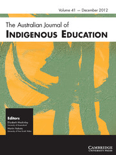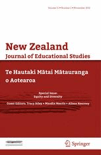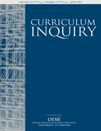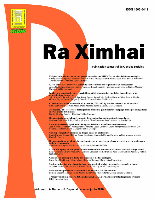
Australian Journal of Indigenous Education
Scope & Guideline
Exploring Cultural Narratives in Academic Discourse
Introduction
Aims and Scopes
- Indigenous Educational Practices:
The journal focuses on the development and evaluation of educational practices that are culturally relevant and responsive to Indigenous students, emphasizing the importance of incorporating Indigenous knowledge and pedagogies into mainstream education. - Research on Indigenous Student Experiences:
It highlights studies that investigate the experiences of Indigenous students within educational settings, exploring factors that contribute to their academic success, engagement, and retention. - Community Engagement and Empowerment:
The journal promotes research that emphasizes the role of community engagement in education, showcasing initiatives that empower Indigenous communities and enhance their participation in educational processes. - Policy and Institutional Frameworks:
It examines the impact of educational policies and institutional frameworks on Indigenous education, advocating for systemic changes that support the needs of Indigenous learners. - Interdisciplinary Approaches:
The journal encourages interdisciplinary research that integrates perspectives from various fields, such as health, social work, and cultural studies, to provide a holistic understanding of Indigenous education.
Trending and Emerging
- Culturally Responsive Pedagogy:
There is a growing emphasis on culturally responsive teaching practices that adapt to the needs of Indigenous students, highlighting effective strategies for integrating Indigenous perspectives into the curriculum. - Intersectionality in Indigenous Education:
Recent papers are increasingly exploring the intersections of identity, including gender and sexuality, within the context of Indigenous education, addressing the unique challenges faced by diverse groups within Indigenous populations. - Health and Education Integration:
Research linking health education and Indigenous wellness is on the rise, reflecting a holistic approach to education that considers the health and well-being of Indigenous students as integral to their educational success. - Indigenous Leadership and Agency:
There is a notable trend towards exploring Indigenous leadership within educational settings, focusing on how Indigenous educators and community members can drive change and advocate for better educational practices. - Community-Centric Approaches:
Emerging themes also include research that prioritizes community involvement in educational initiatives, showcasing how local knowledge and community engagement can enhance educational outcomes for Indigenous students.
Declining or Waning
- Traditional Pedagogies:
There has been a noticeable reduction in publications focused solely on traditional Indigenous pedagogies without a modern contextual application. This shift suggests a growing emphasis on integrating Indigenous knowledge with contemporary educational practices rather than discussing traditional methods in isolation. - Generalized Indigenous Studies:
While the journal continues to address Indigenous education broadly, there is a decline in studies that treat Indigenous education as a monolithic experience, emphasizing the need for more nuanced, culturally specific research that reflects the diversity of Indigenous communities. - Comparative Studies:
Research that compares Indigenous education systems across different countries or regions appears to be waning. The journal is increasingly focusing on localized studies that dive deeper into specific Indigenous contexts rather than broad comparisons.
Similar Journals

South African Journal of Libraries and Information Science
Navigating the dynamic world of libraries and information.South African Journal of Libraries and Information Science, published by FORUM PRESS, is a premier open-access journal dedicated to advancing knowledge and research in the realms of library science and information management. Since its inception, this journal has been pivotal in promoting scholarly discourse amongst librarians, information professionals, and researchers within South Africa and beyond. With its open-access model implemented in 2011, it provides an invaluable platform for the dissemination of research findings, encouraging accessibility and collaboration within the field. The journal features a diverse range of articles that explore contemporary issues, innovations, and best practices in libraries and information science, making it essential reading for those seeking to stay at the forefront of this dynamic discipline. By fostering open dialogue and knowledge sharing, the South African Journal of Libraries and Information Science plays a critical role in shaping the future of library and information science education and practice.

Journal of Education
Transforming knowledge into impactful teaching methodologies.The Journal of Education, published by the University of Kwazulu-Natal’s School of Education & Development, is a vital academic resource dedicated to advancing knowledge within the education sector. With its ISSN 0259-479X and E-ISSN 2520-9868, this Open Access journal has been committed to accessibility and dissemination of research since 2017, making significant contributions to the field from its base in South Africa. Though it currently holds a Q4 ranking in the 2023 Education category, the journal serves as an essential platform for scholars and practitioners aiming to share innovative teaching methodologies, educational research, and policy studies. Researchers will appreciate its growing relevance as it converges studies from 2019 to 2024, ensuring it remains at the forefront of educational discourse. By addressing crucial issues in social sciences and education, the Journal of Education is poised to support the development of a more informed and effective educational landscape.

South African Journal of Higher Education
Shaping the future of higher education through collaboration.South African Journal of Higher Education, published by SUNJOURNALS, is a leading peer-reviewed platform dedicated to advancing scholarship in the field of higher education. As an Open Access journal since 2016, it ensures that research findings are freely accessible to a global audience, fostering collaboration and innovation among researchers, educators, and policymakers. With the ISSN 1011-3487 and E-ISSN 1753-5913, this journal aims to disseminate high-quality research that addresses current challenges and trends in higher education within South Africa and beyond. The journal's commitment to scholarly excellence enhances its importance in contributing to impactful educational practices and reforms. By providing a platform for contemporary academic discourse, it serves as a vital resource for professionals in the field, facilitating the exchange of ideas that can shape the future of higher education. For researchers, this journal is an invaluable tool for staying abreast of the latest studies, methodologies, and theoretical frameworks.

International Education Journal-Comparative Perspectives
Highlighting Diverse Educational Practices Worldwide.International Education Journal-Comparative Perspectives is a vital platform for the dissemination of research in the field of comparative and international education. Published by the Oceania Comparative & International Education Society in Australia, this journal has been contributing to academic discussions and scholarship since its inception in 1999. With ISSN 1443-1475 and E-ISSN 2202-493X, this journal covers a broad spectrum of topics relevant to education practitioners, researchers, and policymakers. Notably positioned in the Q4 quartile within its category and ranking 1247 out of 1543 in Scopus, it serves to highlight diverse educational practices across different contexts. Although it does not currently feature an open access model, the journal aims to promote knowledge exchange and enhance comparative educational research through its dedicated publications. As it continues to expand its reach until 2024, the International Education Journal-Comparative Perspectives remains an essential resource for those committed to understanding and improving education globally.

NEW ZEALAND JOURNAL OF EDUCATIONAL STUDIES
Empowering educators through rigorous scholarly discourse.NEW ZEALAND JOURNAL OF EDUCATIONAL STUDIES, published by SPRINGER INTERNATIONAL PUBLISHING AG, stands as a vital resource in the educational field, specifically recognized within the Q2 category of education journals. With an ISSN of 0028-8276 and an E-ISSN of 2199-4714, this journal has been contributing to scholarly discourse since its inception, covering a wide array of topics in educational research and practices. The journal boasts a Scopus rank of #773 out of 1543 in the Social Sciences (Education) category, placing it in the 49th percentile among its peers. Despite its non-open access format, the NEW ZEALAND JOURNAL OF EDUCATIONAL STUDIES is widely regarded for its rigorous peer-review process and the high quality of its articles, making it an indispensable tool for researchers, educators, and students aiming to stay informed about the latest trends and findings in educational theory and practice. Published in Singapore, the journal is committed to advancing our understanding of education, contributing valuable insights that resonate within both local and global contexts.

CURRICULUM INQUIRY
Pioneering New Paths in Curriculum InquiryCURRICULUM INQUIRY is a prestigious academic journal published by Taylor & Francis Ltd, focusing on the dynamic field of education. Since its inception in 1976, this journal has served as a critical platform for researchers and practitioners alike to explore and interrogate various aspects of curriculum development and implementation. With an impressive Scopus ranking placing it at #502 out of 1543 in the Social Sciences Education category, it stands in the 67th percentile of its peers, reflecting its significant impact and relevance in the education sector. The journal is categorized in the Q2 quartile, further demonstrating its scholarly importance. Although it does not currently offer Open Access, CURRICULUM INQUIRY remains dedicated to advancing the discourse surrounding educational practices through rigorous peer-reviewed articles, critical reviews, and innovative research findings. Positioned for continued excellence through 2024 and beyond, this journal is essential reading for educators, policy-makers, and students invested in curriculum studies. For more information, readers can explore its comprehensive collections designed to stimulate critical thinking and pedagogical innovation.

Revista Ra Ximhai
Championing Indigenous Perspectives in Scholarly DiscourseRevista Ra Ximhai is a distinguished academic journal published by Universidad Autónoma Indígena de México, specializing in interdisciplinary studies related to indigenous knowledge, culture, and socioeconomic issues. Since its inception as an Open Access publication in 2005, the journal has championed the dissemination of research that amplifies indigenous voices and perspectives, fostering an enriched understanding of various fields including anthropology, sociology, and environmental studies. Although it does not currently have an H-index or Scopus rankings, Revista Ra Ximhai remains vital for researchers, professionals, and students who are engaged in or studying indigenous rights and cultural preservation. With a commitment to scholarly excellence and accessibility, the journal makes significant contributions to its field, making it an invaluable resource for those dedicated to the advancement of knowledge regarding indigenous communities, especially in Latin America.

Revista Brasileira de Educacao do Campo-Brazilian Journal of Rural Education
Enhancing educational practices for a brighter rural future.Revista Brasileira de Educação do Campo - Brazilian Journal of Rural Education, published by Universidade Federal de Tocantins (UFT) since 2016, is a distinguished open access journal aimed at advancing research and scholarship in the field of rural education. With its commitment to enhancing educational practices and policies in rural settings, this journal serves as a vital platform for researchers, educators, and policymakers to share their findings and innovations. By embracing a diverse range of interdisciplinary perspectives, the journal seeks to address the unique challenges and opportunities faced by rural educators in Brazil and beyond. The journal's dedication to open access ensures that the knowledge produced is widely disseminated, fostering a rich dialogue within the educational community. As the field of education continues to evolve, Revista Brasileira de Educação do Campo stands at the forefront, championing the importance of equitable and inclusive education for all learners.

International Journal of Indigenous Health
Advancing Indigenous Health Through Knowledge and DialogueInternational Journal of Indigenous Health is a leading academic platform dedicated to advancing the understanding and promotion of health issues pertinent to Indigenous populations. Published by the University of Victoria Centre for Aboriginal Health Research, this journal serves as a critical resource for researchers, policymakers, and practitioners interested in Indigenous health perspectives, cultural practices, and healthcare strategies. The journal's open access model facilitates widespread dissemination of knowledge, ensuring that vital research reaches those who need it most. With its commitment to exploring the intersection of health and Indigenous knowledge systems, the International Journal of Indigenous Health plays a significant role in fostering dialogue, driving healthcare innovations, and improving health outcomes for Indigenous communities globally. For researchers and professionals dedicated to this important field, engaging with this journal will not only enhance their understanding but also contribute meaningfully towards the evolution of Indigenous health research.

Journal of Outdoor and Environmental Education
Fostering Interdisciplinary Research in Nature and LearningJournal of Outdoor and Environmental Education, published by SPRINGERNATURE, stands as a significant platform for interdisciplinary research in the realms of education and health professions, focusing particularly on the integration of environmental and outdoor contexts into educational practices and therapeutic interventions. With an ISSN of 2206-3110 and an E-ISSN of 2522-879X, this academically rigorous journal aims to foster a greater understanding of how outdoor experiences can influence learning outcomes and enhance well-being. It holds a commendable ranking in the 2023 Scopus categories—positioned in the Q3 quartile within both Education and Physical Therapy, Sports Therapy, and Rehabilitation. Operating from its base in Switzerland, the journal emphasizes accessibility, striving to offer an open platform for contributions that inform educators, therapists, and researchers alike. With a convergence of perspectives from 2016 to 2024, the Journal of Outdoor and Environmental Education plays a pivotal role in advancing discourse and innovation in outdoor education practices and their implications for health and physical activity.